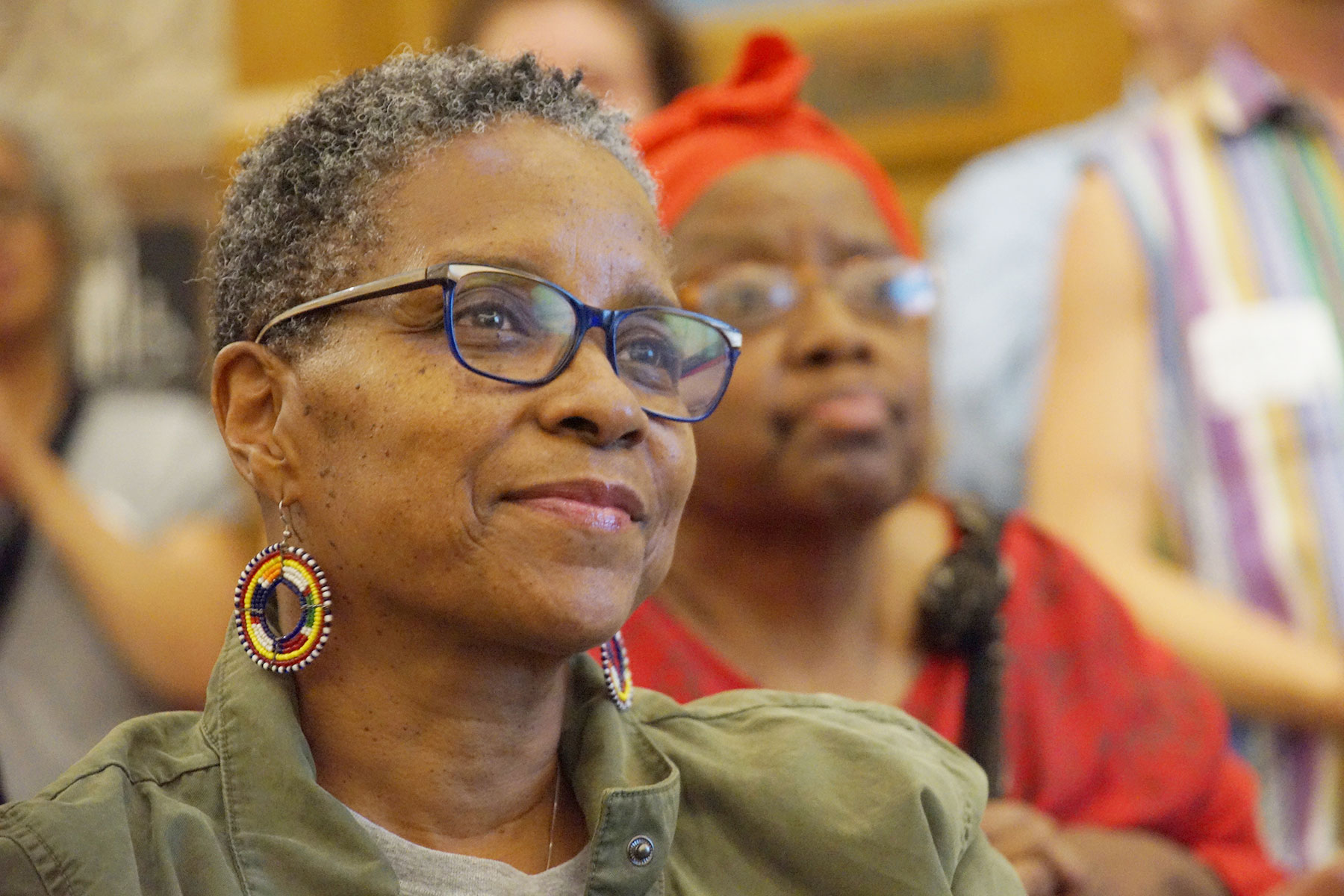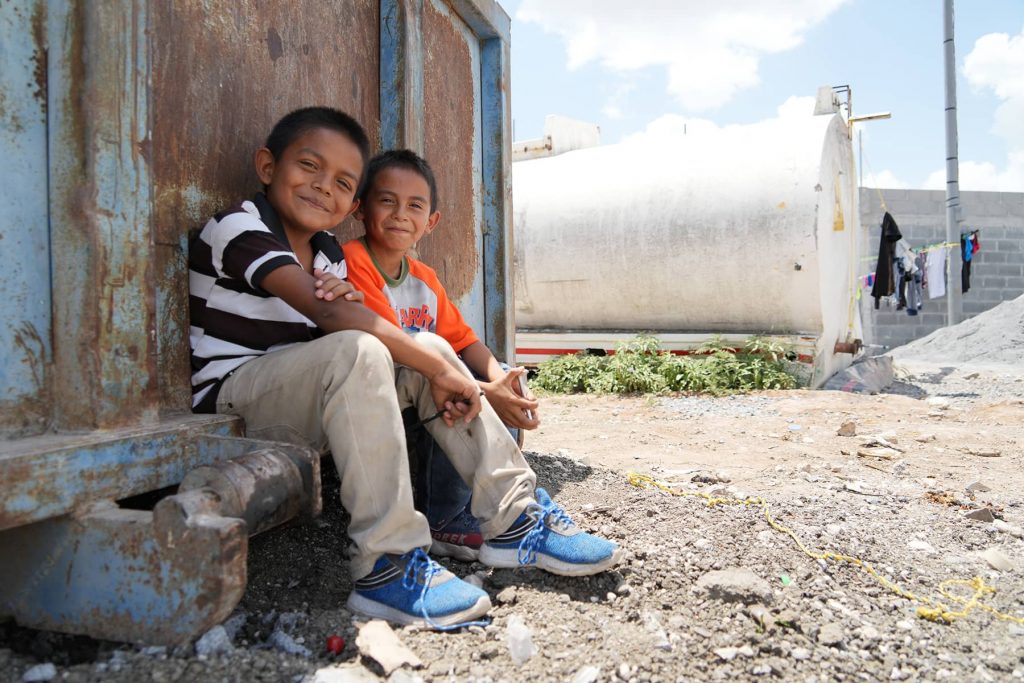
How does a person who has experienced racial profiling or profiling of any kind articulate it to others outside of that experience? What will make them believe it actually happened-even if they have never experienced it in the spaces they describe as inclusive, safe or liberal?
In my own experience of being profiled at an east side eatery last spring, the reality of an isolated moment that may have been interpreted as a slight has grown into enormous proportions because I talked about it.
I was recently called out on social media by one rogue sympathizer of the aforementioned establishment for “looking for a cause to hate white people” and for holding on to my own “pent up anger against whites.” This person posted that they could call me out because they themselves were Native American with drops of African ancestry. They felt I was out of line to presume that my single experience was based on race at a place where black people held jobs. They felt I was trying to shut down a perfectly good business over a $6 purchase.
Here is a summary of my experience:
This all began last May when I questioned a checkout procedure for me that didn’t apply to a woman ahead of me in line who happened to be white and was purchasing similar items. I had been a regular customer at this eatery for the nearly 28 years I’ve lived in Milwaukee.
I am familiar that hot items require a separate process than other retail items. On that day, at the deli, I ordered a hot item, and as I presented the additional retail item, I remembered that I would need to pay for it separately at the main cash register. This was not the problem.
The young person behind the deli counter said I had the option to pay for both at the register (I had done that before.). However, she then said, “Pay for both over there and return here to me with this stamped chit” and gingerly handed me the chit. My food item was already packaged and in a bag. She said she would hold it for me behind the deli counter to retrieve after I paid. I was confused and annoyed but followed the protocol.
The woman in front of me at the general register placed her basket on the counter. Her basket contained a mix of items from the retail part of the store and about 10 other hot food items that hadn’t yet been paid for. In my mind, an alarm sounded and a familiar sixth sense of some kind.
When I witnessed that transaction, I realized that I was being treated differently. Did the deli server think I would steal a burrito while the lady in front of me had walked around the store with her items and didn’t have to follow the same protocol? I pushed that thought into the recesses of my mind but remained annoyed. I wanted answers.
I turned to see the deli server observing me from behind the counter as I stood in line at the general checkout area with my chit. I racked my brain, as I didn’t remember that procedure being handled in that way in the past. I questioned the “I will hold your food item here for you until you return with the chit showing proof of purchase” part.
After I had my chit stamped and returned for my burrito, the young woman behind the counter handed me my purchase. When I questioned why the woman ahead of me didn’t have to follow the same protocol, she offered that she didn’t know-but that she, herself, followed store policy and couldn’t vouch for what others did or didn’t do. She then became agitated and asked if I would like to speak with her manager. I said “sure.”
She marched to the manager’s office, and I moved toward the end of the deli counter to witness her gesturing toward me (The office is visible through a window.). The manager stood and came out to greet me. He began with, “I’m sorry if you feel that you were profiled.” I was speechless, as I hadn’t used this verb in my question to her about the method of the transaction and hadn’t begun to frame a question for him. So once again an alarm rang in my subconsciousness. Aha! That is what she was doing!
I explained that I had witnessed another customer ahead of me with similar items who didn’t have to follow policy. He said he didn’t witness that happen and couldn’t speak to it but offered again his apology for me “feeling” profiled and being made unhappy. I asked about any posted signage about this policy, and he said there wasn’t any, but he realized-in that moment-they would now need to place some signs near the registers to avoid confusion.
I left with my burrito and one retail item feeling conflicted and preoccupied about what had taken place, replaying the tape in my head. I went back to my workspace and stared at the bag with its bright red logo for about an hour before I decided to write across the top of that logo with a bright red Sharpie marker, “I was racially profiled today @__________.
I stared at the bag, and the words I had written seemed to validate my experience, not make it a question, but a reality . . . a fact! I shared it on my two social media accounts with a question and statement in my status.
“When you ask yourself why your monetary transaction was handled differently from another customer who is “white presenting,” but you don’t describe them as such & you are assured that it is policy…that, “you were not being Profiled!” without you even using the words “white” or “profiled” then you realize, because you are calling into question a policy that seems only to apply to you by example…Yes! You were profiled!”
A few days after this happened, and my social media blew up with commentary, one of the owners of the establishment sent me an email, asking to meet, and I obliged to meet him anywhere but at his store. When we met, he immediately extended a verbal apology and shared his empathy about the experience. He said, “I believe it happened. No question.” I believed him. I believed he was remorseful. This put me at ease, as did his pledge to work with me toward planning a community action to address, apologize and train his employees to prevent this from happening again. We framed it around a community-involved teach-in/forum/table with trained mediators. This hasn’t happened.
Time got in between, with the start of summer and following up with him months later. I eventually was sent a lukewarm response that said the business was working to resolve these matters internally.
WHERE ARE WE NOW?
I was a self-professed loyalist before this occurred. But now? I’m woke. I’ve kept a promise to myself that I would not cross the threshold of that store again. I have not been back. I have also reminded friends, colleagues and associates about my experience when they mention eating or ordering food from there.
When asked by others how they could support me, I’ve asked folks to stand in solidarity with me-if they believed it happened, if they cared that it shouldn’t happen to anyone. In turn, folks have written letters, sent notes and called the business about their disappointment that this occurred there and that no actions have been taken to resolve or reconcile.
I am asked what I want. I hold out hope that the owners demonstrate they are intolerant of biased behaviors by their employees by not framing it as a flaw in their checkout procedure. Furthermore, I would like them to take what has happened seriously-whether on or off Facebook and Instagram. Move the needle, raise the vibration and sustain actions to change any and all types of biases and gestures leading to discrimination of any kind.
I was born in the mid-50s. I am no stranger to racial profiling, yet I was caught off-guard, was shocked when all the feels were present. I am usually self-aware in spaces where there is a climate of distrust of otherness; of blackness; of brown-ness. I navigate between the Midwest and the South, so I am self-aware of the spaces that are inclusive and those that are not. Before this encounter, I hadn’t felt unwelcomed or distrusted in that space.
That I would need to reframe my experience again and again to persuade skeptics that this happened, that I would have to second guess my own intuition about this type of behavior-one that I have long been familiar with-is profoundly distressing. I am reminded of my childhood and of learning to navigate between segregated and privileged communities.
What I experienced is not new, is not something I didn’t recognize, is not something I imagined or projected and is not something I will soon forget. This is NOT something that should be dismissed, diminished or made out to be a lie by those who have never experienced it.
Portia Cobb
Lee Matz













